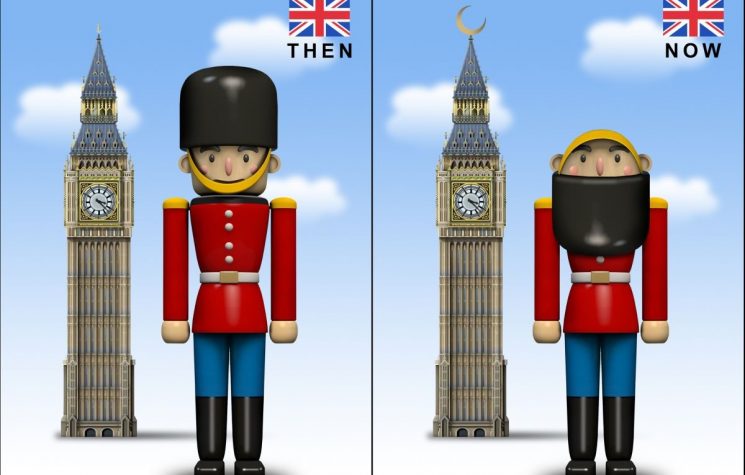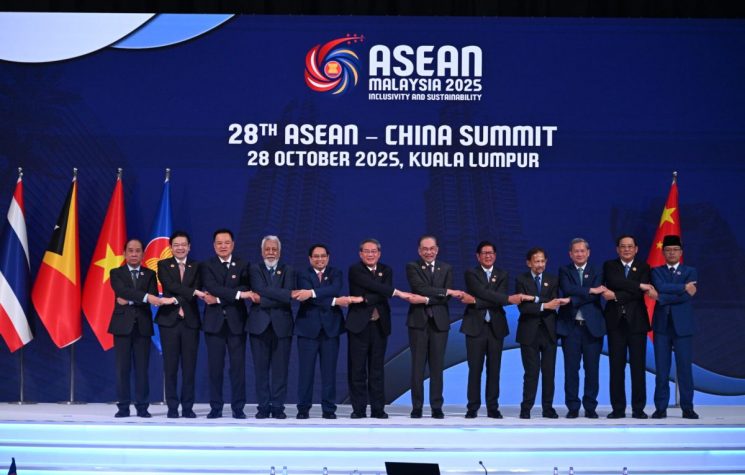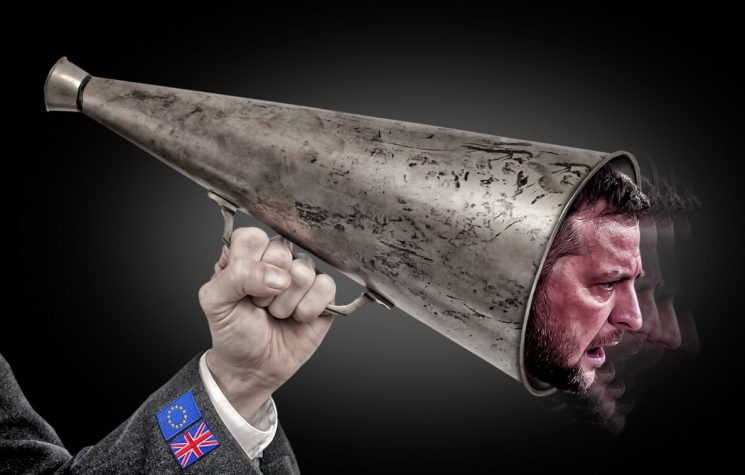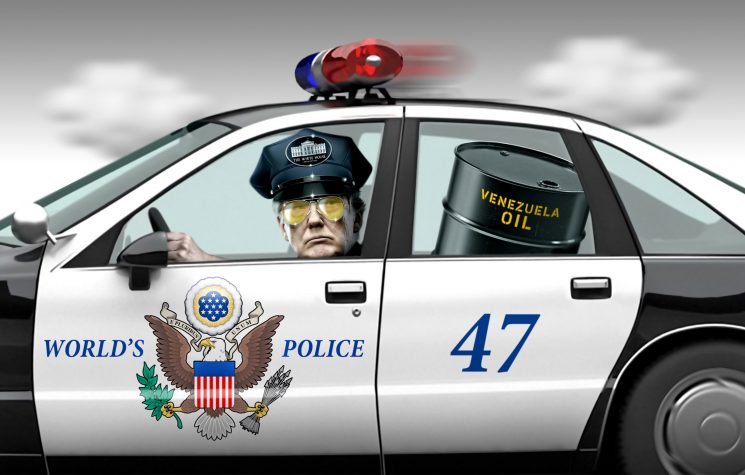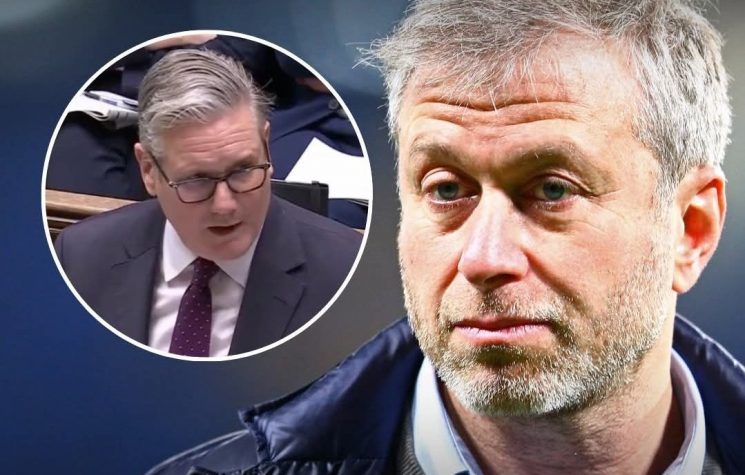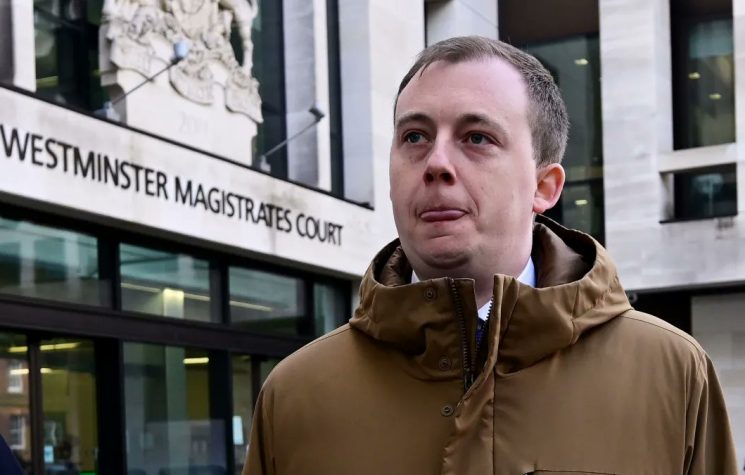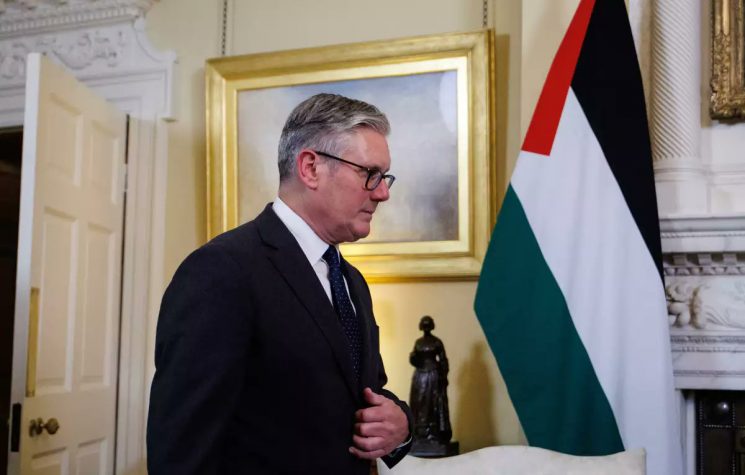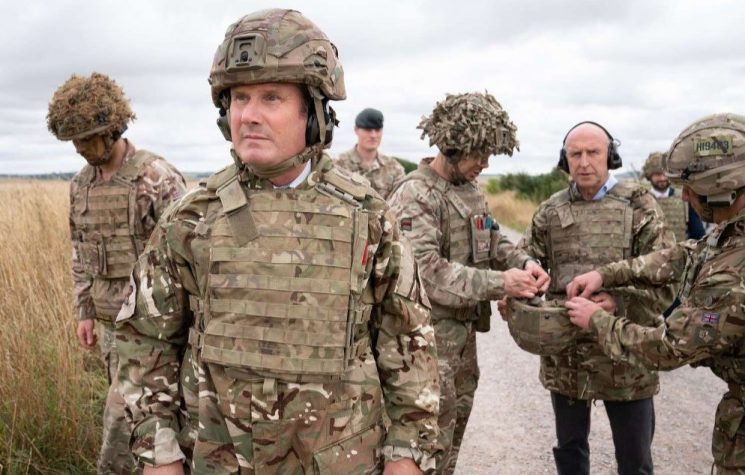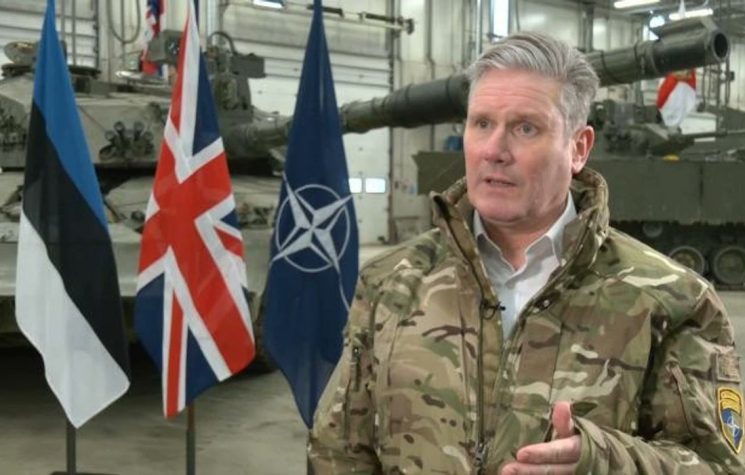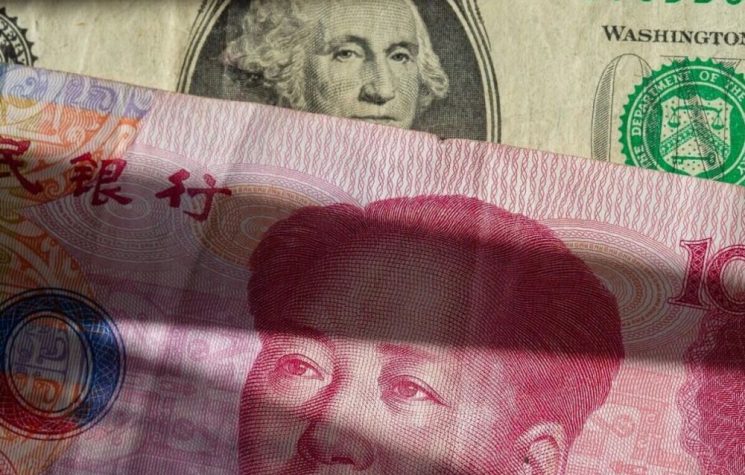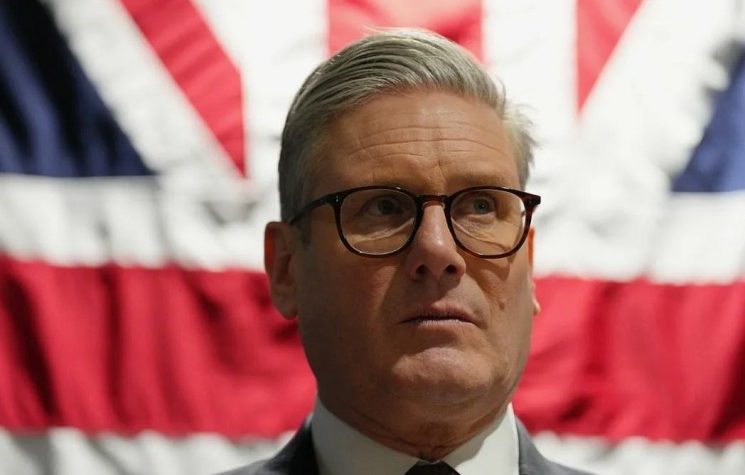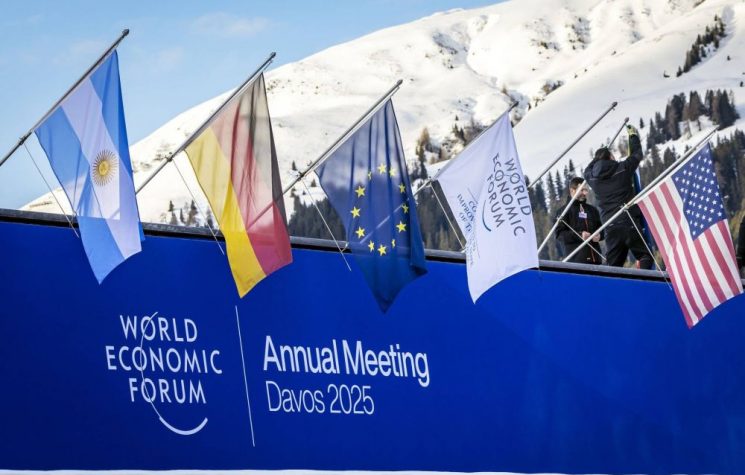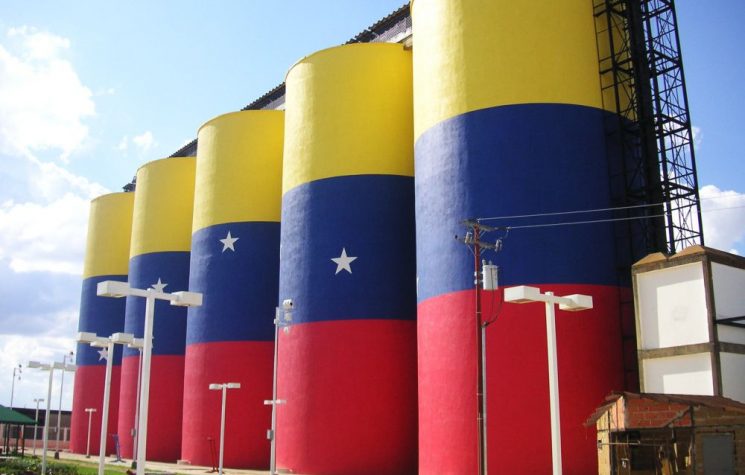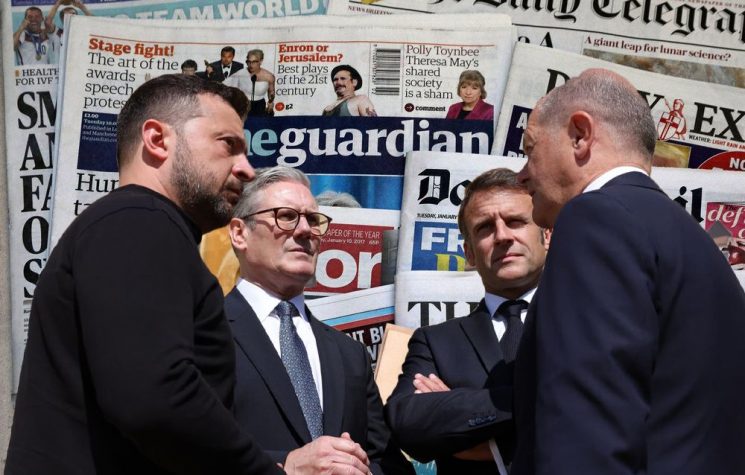Starmer’s policy pivot on trade and investment shows a level of clarity and purpose not seen in his faltering first six months on foreign policy
Contact us: info@strategic-culture.su
Britain and Russia find themselves in a fascinating position of taking a moderate line on Trump’s Tariff war while at the same time building close economic ties with China. I wonder when Keir Starmer might decide to reinvigorate economic relations with Russia?
Prime Minister Keir Starmer has been remarkably quiet in his reaction of the unfolding trade war between the U.S. and China. Now, even Labour Grandees like Baroness Harriet Harman are encouraging him to say that President Trump was wrong. I don’t think he will.
Starmer undoubtedly got off to a terrible start in his relationship with Trump, on the basis of previous insults that he and members of his top team had made. But there has been a seismic shift in the posture of the Labour Government’s engagement with the White House since Starmer’s meeting in the Oval Office on 27 February.
It has been clear since February that Starmer has made a strategic choice to prioritise landing a trade deal with the USA, including, in part, to minimise the risk of blow-back from the trade war that’s now unfolding.
This has been driven by both Rachel Reeves as Chancellor and the politically appointed British Ambassador, Lord Peter Mandelson. Mandelson is not a Starmer ally and has been critical of Trump in the past. However, he has apologised and started a major charm offensive with the Republican administration, which seems to have paid off, so far.
Indeed, the approach largely mirrors that taken by President Putin’s Trade Envoy Kirill Dmitriev, who, like Starmer and his Ministers, has been laying on the charm in DC while the storm clouds build over world trade. For perhaps different reasons, Russia, too, sees considerable political and economic benefit in reigniting its mostly dormant relationship with America, as Europe is locked in economic and democratic decline. But it is nevertheless striking to see such narrative consistency between UK and Russian officials towards the U.S. at this time of global turmoil.
From the UK perspective, you can see this in the measured if, at times, ill-conceived approach the Starmer is taking towards Trump’s peace effort in Ukraine. Rather than circling the European wagons, Starmer is slowly realigning with Trump on the need for an end to the bloodshed, even if his messaging on Russia is little changed and his coalition of the willing talks are moving in circles.
Prioritising movement on UK-U.S. free trade talks with America which have lain dormant since Brexit now trumps telling the U.S. President that talking to Putin is wrong.
Starmer’s policy pivot on trade and investment shows a level of clarity and purpose not seen in his faltering first six months on foreign policy, where he has brought nothing new, either on Ukraine or on the situation in Gaza.
The State Visit of President Trump is the main pillar of this approach, supported by active in-country engagement by the British Ambassador in Washington, and his diplomatic network. By inviting President Trump to Britain, with all the pomp and ceremony that Britain offers like no other country, the UK government is prioritising its trade and investment relationship with the United States as its top priority.
The UK government has discovered realism, and so far that has put Britain on the bottom rung of Trump’s initial tariff ladder, now paused. Keep calm and carry on is the watchword for those who fear the UK getting caught by collateral damage in what might be a messy U.S.-inspired global trade war.
However, the interesting challenge Britain faces right now, is that it is trying to make exactly the same pivot to China, just as the Americans and Chinese as having a colossal battle of wills on tariffs.
Despite a difficult on-and-off UK-China relationship over the past decade, Keir Starmer has, in parallel, made a revitalised trade and investment partnership a top priority. Upon taking up office, he commissioned an Audit of UK-China relations, the full details of which will never see the light of day, but which, it is clear, have already given a greenlight to a deepened Sino-British economic partnership.
The British government is engaging at a Prime Ministerial and Ministerial level with China at a level not seen since Prime Minster David Cameron’s leadership between 2010-2014. There has been a wave of ministerial visits, starting with David Lammy in October, Rachel Reeves in January, Ed Miliband in March, and Douglas Alexander, the junior Trade Minister, this week. Even the Chief of the Defence Staff, Admiral Sir Tony Radakin, has just made the first high level military to military visit in a decade. The reestablishment of various fora of bilateral dialogue, including on financial services and energy, and the appointment of a new Sinophile British Ambassador to Beijing, Peter Wilson.
You heard it here first, but don’t be surprised to see President Xi invited to Britain in 2026 for a second state visit. Just as King Charles is positioning himself as President Trump’s warmest peer in Europe, he may soon be dong the same with the Head of State of the world’s second largest economy.
Since the arrival of the new Labour government, there has been considerable message consistency on engagement with China across the UK government ministries, which emphasise growth through deepened trade and investment. Starmer is taking a gamble that increased exports to China and inflows of Chinese capital will help boost sluggish growth in Britain and increase prosperity among traditional labour voters.
In that, he is pursuing a polar opposite strategy to President Trump, by sticking with the financial sector and services led economic model, creating a natural fit with a Chinese economy with capital to burn, and major technological advantages, particularly in green technologies.
With the Conservative party weakened at least for the next four years, the Labour government believes it can manage the political risk around China’s record on democracy and human rights, and drive forward with an active China trade and investment agenda, under the banner of progressive realism. Ironically, Trump’s trade war may well have made that job easier, with even China and the EU now looking to bury the hatchet (at least temporarily) on tariffs.
A major challenge for Starmer will be to avoid an awkward conversation with either Trump or Xi in which he is asked to pick sides. In this regard, he has almost taken a leaf out of President Putin’s book in adopting multi-vector diplomacy, pursuing warm ties with China just as he does the same with the U.S.
There is a bizarre and ironic alignment here between the economic statecraft of Britian and Russia at a time when the Keir Starmer still flatly refuses to engage in any dialogue with President Putin or, more likely, his Prime Minister, Mikhail Mishushtin.
Prior to the Ukraine crisis starting in 2014, the two-way UK-Russia trade and investment relationship was flourishing, with Russia the biggest customer of Nissan Qashqai’s made in Sunderland, deep collaboration with the City of London and Moscow City, BP holding a 19.75% stake in Rosneft, and strong ties between Universities in Britain and Russia, delivering dual degree programmes, to name but a few areas.
If Britain really is intent on going full bore towards an energetic and multi-vector trade and investment policy across the globe, Starmer might be well advised to get fully behind ending the fighting in Ukraine, before sending Rachel Reeves to Moscow.













